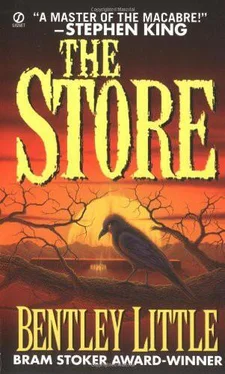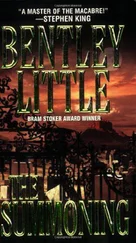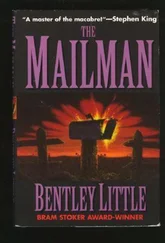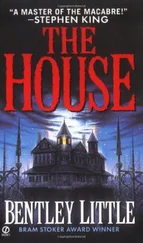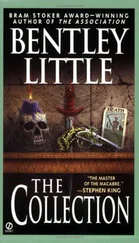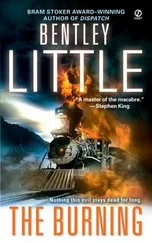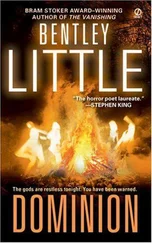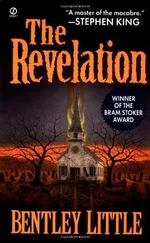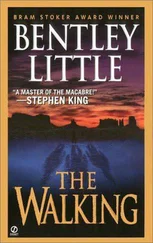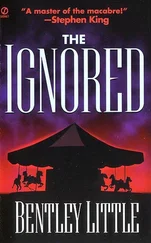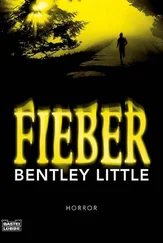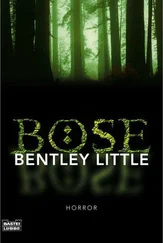"But all the other employees --"
"People only care about police and fire. They're the PR gold. Everyone else is expendable. And my hunch is that since The Store is saying right now that they're all going to keep their jobs, no one's going to want to rock the boat. They'll all be too afraid of losing their positions."
"It's a fucking Catch-22."
"Yeah," Ben said. "It is." He held up his notebook. "But there's still the power of the press. 'The pen is mightier than the sword' and all that good crap."
"You really believe that?"
The editor shook his head. "No. But we have to have something to pin our hopes on."
Ginny was asleep when he got home, but Bill turned the light on in the bedroom as he undressed, waking her up.
"What happened?" she asked groggily.
He told her.
"The council has their heads so far up The Store's ass that their necks are being constricted by Newman King's sphincter and it's cutting off oxygen to their brains," he said, snuggling next to her.
"So what's next?" she asked.
He kissed her cheek, put an arm around her. "I don't know," he said. "I don't know."
2
Not a single customer stopped by the shop.
All day.
Doane read the Phoenix paper, swept the floor, inventoried a shipment of new CDs, stood behind the counter staring into space, sorted his mail, read a magazine, played his guitar.
He wasn't going to be able to last much longer.
He was losing the battle.
He walked to the front of the shop, looked up and down Main Street, saw no cars, no pedestrians. Catty-corner across the road, next to McHenry's electronics store, The Quilting Bee had finally given up the ghost, old Laura moving all of her stuff out yesterday. Word had it that she'd still be selling out of her house, but Doane wasn't sure. She seemed pretty burnt-out and bitter these days, angry at her old customers for not coming through when she needed them, still owing a month's rent, and he wouldn't be surprised if she just packed it all in permanently.
He knew how she felt.
All of the downtown merchants did. Members of the public always paid lip service to the idea of the small businessman and America's great entrepreneurial spirit. They bemoaned the loss of the corner store and complained about the impersonality of large corporations, the excesses of big business. But when push came to shove, they chose convenience over service, picked price over quality.
There was no loyalty, no real sense of community among people anymore.
Now the town was siding with The Store, with Newman King and his multimillion-dollar corporation.
And turning their backs on local businessmen.
Like himself.
Those were the breaks, he knew. And if he was merely a consumer, he might do exactly the same. But he couldn't help feeling resentful over an attitude that he saw as shortsighted and self-serving.
_Consumer_.
He had never realized before what an aggressive word it was. In his mind, it conjured up an image of an insatiable monster, eating everything in its path, its only purpose, its only reason for existence, to consume whatever it could.
He stared out the window and found himself thinking of that old Randy Newman song, "It's Money That Matters." It _was_ money that mattered, wasn't it?
He shook his head. Times had changed. Twenty years ago -- a decade ago, even a rich man spending millions of dollars to get himself elected to public office would have been looked upon with suspicion and distrust. But in 1992, the town had voted overwhelmingly for Ross Perot, either buying completely into his "common man" persona and believing that the billionaire was more like them than were either of his two opponents, or else respecting and admiring his enormous wealth.
Doane suspected the latter.
The priorities of this fucking country were screwed up.
Hell, after the council meeting the other night, an angry old woman had accosted him in the parking lot of town hall and called him an obstructionist.
"It's people like you," she spat, "who are trying to stop progress and ruin this town!"
By progress, he assumed she meant the extinction of his business and the demolition of downtown Juniper.
Because that's what was going to happen.
He moved away from the window, went back behind the counter, and spent the next hour looking at a music catalog, reading through a list of upcoming CDs that he wouldn't be able to order, before going into the back room and heating up a Cup O' Noodles for his dinner.
The hours stated on the sign in his window were 10:00 to 10:00, but it was obvious to Doane by eight-thirty that he might as well close up shop. No one had stopped in during the previous ten hours, and it was pretty damn unlikely that they were going to do so now. Especially with the street as dark as it was.
He glanced out the window. All of the other shops were closed, and his was the only light visible on Main. The town never had gotten around to installing streetlights, and while that hadn't made much difference in the past, particularly when Buy-and-Save had been open, it now made Main look like a ghost town. Sighing, Doane locked and double-locked the back door, put the register money in the safe, and switched off all lights except the small security bulb directly over the counter. He exited the store through the front, locking the door behind him.
And turned to see a line of tall men standing between him and his car.
His heart lurched in his chest, and there was a sudden feeling of cold dread in the pit of his stomach. He'd been jumped once by a gang in Chicago, saved only by the stiletto in his pocket and the provident arrival of two patrol cars, and the trapped feeling of fear he'd experienced when that gang surrounded him returned in a rush. The figures in the narrow parking lot before him weren't exactly threatening, weren't moving or making any overt noises or gestures, but there was something intimidating in their uniform stance, something aggressive about the way they were blocking access to his car.
He tried to ignore them but couldn't, thought of walking around them to reach his vehicle but didn't want to show his fear. They were wearing what looked like black raincoats -- long jackets made of shiny jet material that was deeper than the night, darker than the shadows, but somehow reflective of both.
He didn't know why they were wearing raincoats -- it wasn't raining, wasn't even overcast, and their choice of garb seemed not only odd but menacing.
He took a step toward his car.
The figures took a step toward him.
"Hey," he said. "What do you think you're doing?"
There was no response.
No word, no grunt, no chuckle.
Only silence.
"Get out of my fucking way," he ordered.
None of them moved.
He considered going back inside, calling the cops, but he'd have to find his key on the key ring and then unlock the door, and he did not want to let these creatures out of his sight for a second.
_Creatures?_
He noticed for the first time that he could not see the faces of the figures. They looked like indistinct white blurs in the darkness.
_Too white to be human_.
Now he was just being stupid.
The figures started to advance.
"What do you want?" he demanded. He tried to make his voice angry, but it came out frightened.
There was no response. The figures -- nine of them, he saw now -- kept walking silently toward him.
He wanted to run. The silence, the raincoats, the white faces, everything seemed crazy, spooky. But he didn't want them to win, didn't want to give them that satisfaction, and he held his ground, reached in the pocket of his pants for his jacknife.
The figures pulled out weapons.
Knives.
_Fuck it_. He turned, started to run. In the diffused light, the posters in his window looked eerie. Jim Morrison. Jimi Hendrix. Kurt Cobain. He realized for the first time that all of the musicians in the window were dead men.
Читать дальше
